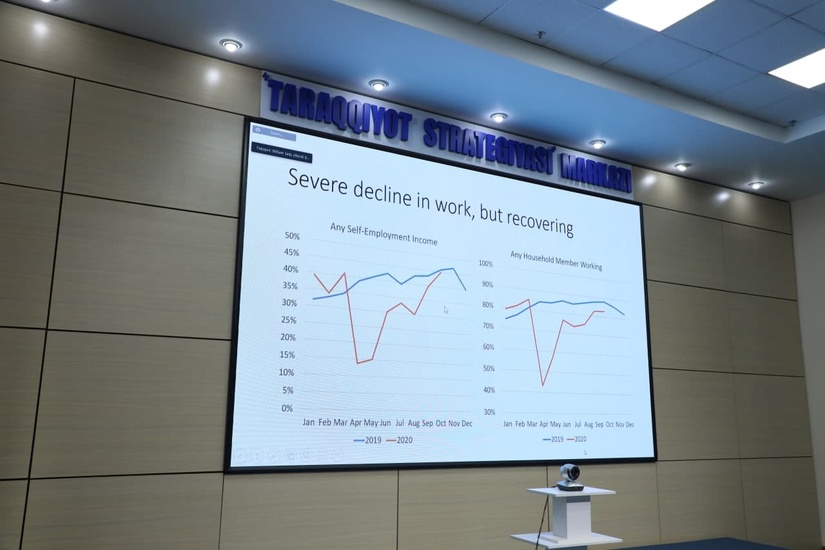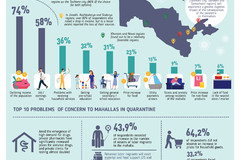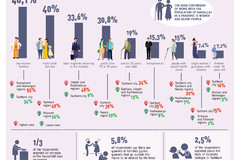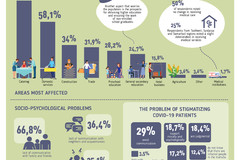On November 11, 2020, a digital conference was conducted to review the surveys ‘Listeningto Citizens of Uzbekistan’ and ‘Socio-economic impacts of COVID-19 in Uzbekistan’: Mahallarepresentatives survey and business survey, and to discuss best means of acting on theirfindings. This event was hosted by the Development Strategy Center of Uzbekistan, jointlywith the Center for Economic Research and Reforms (CERR), the World Bank, the Ministry ofMahalla and Family Affairs, and UNDP.
In order to refine Uzbekistan’s nationwide response to the impacts of the COVID-19 pandemic and the resulting lockdown, UNDP has collaborated with CERR and the Ministry of Mahalla and Family Affairs to measure the socio-economic impacts on families, and limitations posed to small and medium enterprises (SMEs). The purpose of today’s digital conference has been to present these findings to key decision-makers and determine next steps for using the discovered data. It was suggested the latter should become a basis for future policy frameworks and legislation seeking to minimize COVID-19’s impacts and inform Uzbekistan’s continued recovery from the pandemic.
The study of COVID-19’s socio-economic impacts on households took place from May to June 2020, surveying mahalla (neighbourhood) leadership across all regions of Uzbekistan. The survey’s 3,670 respondents including mahalla chairpersons (84.7%), their deputies (12.8%), and mahalla activists (2.5%), 62.9% of whom are from rural mahallas. The survey’s findings found that the pandemic had increased numbers of impoverished families, particularly in urban areas.
Those households most acutely impacted included low-income families (noted by 48% of respondents particularly in Namangan and Samarkand), large families (noted by 40% of respondents particularly in the Tashkent region), and those with returned labour migrants (noted by 55% of respondents particularly in Jizzakh and Kashkadarya). These negative impacts mainly included reduced incomes and job loss, noted by 74% and 58% of respondents, respectively.
This study determined that material assistance such as the distribution of food packages, most required my women and the elderly was considered of greater importance than volunteer assistance. Recommendations for addressing socio-economic impacts included: - Altering measures of economic and social policy to encourage the private sector toimport or produce required goods locally; - Encouraging youth and women to engage in family entrepreneurship by supporting thecreation of small private businesses in mahallas; - Making it easier for women and girls to access assistance and have their concernsheard; - Ensuring the media emphasize the absence of danger from people who have hadCOVID-19 treatment.
A parallel survey considered the COVID-19 pandemic’s impacts on SMEs nationwide, basedon 887 interviews of businesses throughout Uzbekistan. It determined that the most-impactedSMEs were in the tourism, hospitality and catering sectors, and those based in Sirdarya,Namangan, Navoi, Tashkent City and Karakalpakstan, while agriculture, forestry and fisherybusinesses were the least impacted. Businesses most challenged by the pandemic are thosethat have been unable to operate remotely, either due to an inability to transfer workprocesses, or a lack of internet access or required equipment.
The report on this second survey recommended that assistance provided to SMEs should include eliminating bottlenecks in business development, reducing tax burdens, improving access to financial assistance by creating an institutional environment for reducing the lending rate, and supporting transitions to remote work.
The videoconference held on November 11 presented the methodologies and findings of these studies, and detailed strategic objectives for poverty reduction, including supporting families in most need of assistance (as listed in ‘iron notebooks’), and applying means to address unemployment problems. Commitment was attained from all participants to utilize study results in developing new legislation and policy to enhance socio-economic recovery in Uzbekistan.
























leave a comment